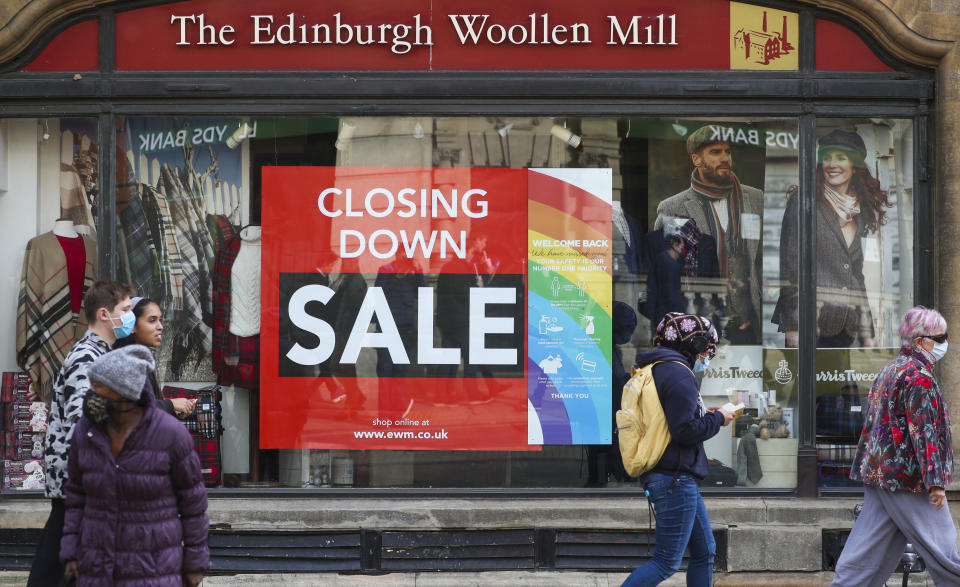2021 prediction: A fifth of Fortune 500 companies won't make it out whole next year

The coronavirus pandemic has changed everything for good — from the way we socialise, to what we consider the workplace.
The one thing that the pandemic proved was that people can work from anywhere as long as they have a good set-up at home and WiFi, it essentially made the idea of traditional office work redundant.
As COVID-19 hit and the government introduced new measures, companies who relied on old systems and office work were suddenly left to think of digital solutions that allowed their staff to work remotely.
Companies have been forced to shift to a digital-first work model and as such leaders have had to spend money where they wouldn’t pre-pandemic. This leaves many firms to cut growth or cut resources all together, leaving them in a precarious position in 2021.
Forrester’s 2021 Predictions report says US tech investment will fall 1.5% in 2021 after years of accelerating tech spend — a $135bn (£103bn) drop from 2019’s spending peak, due to the coronavirus pandemic.
The pandemic has unearthed the many flaws of some companies, but some came up with quick solutions without any long-term plans, which will test their endurance in the new year.
It means that only the strongest can survive, with business-savvy chief information officers (CIOs) who utilise adaptive strategies and technology to respond to the impact on their firm’s operations and customers in the lead.
A fifth of tech-lagging Fortune 500 companies, that struggle to keep up with the changing framework and economic scope will not fare as well or will be completely left behind in 2021.
Watch: Real estate developer and LGBTQI+ activist Gigi Chao on how nurturing acceptance can harness creativity in business
However, there is a light at the end of the tunnel for the 30% of customer-focused firms that will harvest the opportunities that surfaced during COVID-19, taking advantage of their cloud-first and platform strategies.
Those leading organisations will grow their firms up to 3.5 times faster than the average of their peers, as a result.
C-suites will not see much change in 2021.
To accelerate out of the pandemic, more companies will try various combinations of business, technology strategy and operations, either by moving CIOs back under tech-savvy chief operating officers (COOs) — or by promoting those CIOs with the right business acumen to a matching leadership position.
Some business will roll digital, innovation, strategy, and profit and loss (P&L) accountability under “unicorn” leaders. But, over time, they will adopt complementary management models that separate COOs and chief strategy officers, who will share accountability for both the business and technology
Firms who are willing to work in this blended capacity will see a much better recovery from the pandemic.
Technology
In general, tech companies have weathered the pandemic storm better than other sectors as their rapid strategic planning allowed them to succeed during the crisis.
Companies like Zoom (ZM) — the US-based video conferencing company — saw its profits rise thirty-fold in September due to the need for work video calls.
It isn’t all good news, COVID-19 has also resulted in many job losses, business closures and dwindling revenues and many tech bosses are glad to see the end of 2020.
The UK had hopes for becoming an international tech hotspot for unicorns. But the coronavirus pandemic saw many tech start-ups go bust as a result of the crisis.
In June, UK chancellor Rishi Sunak expanded the Future Fund to include start-ups impacted by COVID-19. The fund, created in April 2020 was to provide a lifeline for tech companies at the height of the coronavirus pandemic.
Data visualisation firm Flourish found in April that around 81% of technology startups have stopped or slowed down their hiring.
Meanwhile, Research by Sage found that around 62% of small and medium-sized enterprises (SMEs) in the UK are planning to, or have made, redundancies as a result of the coronavirus outbreak.

Retail
The survival of the retail sector, which was already struggling pre-pandemic is unlikely. The pandemic saw many store closures and job losses due to the coronavirus pandemic and lockdowns.
So far dozens of companies are worried about survive the pandemic, regardless of the measures they take the retail industry faces a stark reality — especially with the shift to online shopping.
In October, a research by the Local Data Company (LDC) and PwC UK, said that the first half of 2020 saw a record number of store closures in the UK due to the coronavirus pandemic.
The study showed that 11,120 chain operator outlets have shut so far this year, while 5,119 shops opened. This means a net decline of 6,001 — almost double the decline tracked in 2019.
But, the count could be higher as researchers did not take into account shops which have yet to reopen following the COVID-19 lockdown, with the grim expectation that many will never operate again.
Many retailers also reached for other options such as company voluntary agreements (CVA) to keep afloat.
A CVA is a formal agreement between a business and its creditors which gives firms the chance of recovery.
It sets out how repayments of company debts should be made to creditors and can deliver a better outcome than an administration or liquidation. After 14 days creditors are asked to vote and at least 75% must agree.
Retailers including New Look, Jigsaw and Edinburgh Woollen Mill have all used insolvency processes to reduce debts as struggling stores buckled under the pandemic pressures and restrictions on high streets.
Restaurants and bars have also turned to CVAs. Pizza Express, Pizza Hut and Revolution Bars have all used the insolvency tool.
Watch: Why job losses have risen despite the economy reopening

